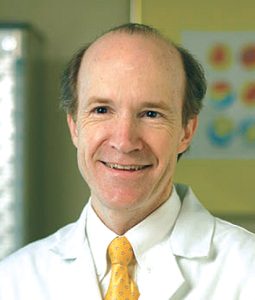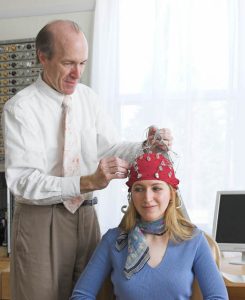
Positive Psychology & Consciousness – new bachelor’s specialization at MIU
This fall, with the launch of its new online bachelor’s specialization in Positive Psychology and Consciousness, MIU will become one of the country’s few schools offering positive psychology at the bachelor’s level. It will also provide the field with the theoretical foundation it has lacked.

Positive Psychology is the study of “what makes life worth living,” according to Fred Travis, chair of MIU’s Maharishi Vedic Science department and chief architect of the new program. It aims to cultivate positive experiences, positive character strengths, and positive relationships.
Travis was inspired to create this program in response to his students’ requests for a more direct connection between Maharishi Vedic Science and modern psychology.
Positive Psychology explores such questions as who am I? What is my purpose? Do I have agency? What is the meaning of life? How can I find fulfillment and help others along the way? Often overlooked, such questions call for wisdom, not the acquisition of information — a whole individual, not an amalgam of isolated skills.
The new Positive Psychology program will strive to address these by synthesizing modern psychological perspectives with the knowledge of consciousness in Maharishi Vedic Science.
Simultaneously, the it will provide practical tools and strategies to help students find their own unique answers. Since positive outer development is based on “experiencing our inner universal nature,” Dr. Travis says, the program is grounded in the experience and understanding of higher states of consciousness.
Dr. Travis will also design and teach the introductory course. A leading neuroscientist in the field of brain functioning and higher human development, Travis interweaves meditation, brainwave patterns, and cognitive functioning in his far-reaching work.
Fulfilling the lack — a proper theoretical foundation
Travis identifies a fundamental lack in Positive Psychology that hinders it from reaching its full potential. This lack, he believes, can be filled with the integration of Maharishi Vedic Science (MVS).

“Positive Psychology is a collection of research findings,” he says. “It lacks a theoretical foundation. MVS adds the theoretical foundation that explains these research findings: the importance of self-esteem and an evidence-based means to develop it, i.e., TM practice; how our perspective determines our reality and how our perspective changes as consciousness grows; and the importance of happiness. The natural tendency of life is the expansion of happiness.”
Also missing in Positive Psychology is the importance of a healthy body.
“The quality of functioning of the mind and body are synergistic,” Travis says. “We need a healthy body to take us through life to higher states of consciousness.”
This first course will delve into the intersection of mind and body, examining the cycle of how thoughts and emotions affect our physical health while physical health, in turn, affects our thoughts and emotions — all undergirded by how growth of higher states of consciousness supports overall physical, mental, and emotional health.
The Positive Psychology program represents a significant addition to the MIU curriculum. Nationwide, 90% of adults say mental health is a crisis in the US, which seems reflected at the societal level.
“Education can lead us to a better future,” Dr. Travis says, “especially if it focuses on developing purposeful, cooperative, and happy individuals who know thyself. That is the aim of Positive Psychology.”
